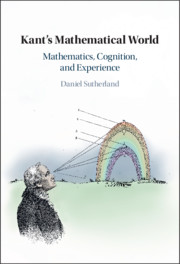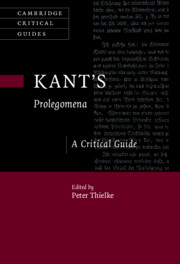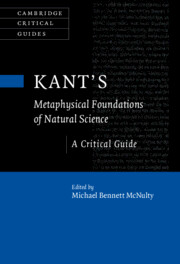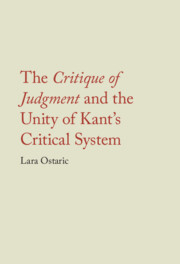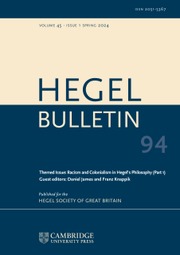Kant's Mathematical World
Mathematics, Cognition, and Experience
£75.00
- Author: Daniel Sutherland, University of Illinois, Chicago
- Date Published: October 2021
- availability: Available
- format: Hardback
- isbn: 9781108429962
£
75.00
Hardback
Other available formats:
Paperback, eBook
Looking for an inspection copy?
This title is not currently available on inspection
-
Kant's Mathematical World aims to transform our understanding of Kant's philosophy of mathematics and his account of the mathematical character of the world. Daniel Sutherland reconstructs Kant's project of explaining both mathematical cognition and our cognition of the world in terms of our most basic cognitive capacities. He situates Kant in a long mathematical tradition with roots in Euclid's Elements, and thereby recovers the very different way of thinking about mathematics which existed prior to its 'arithmetization' in the nineteenth century. He shows that Kant thought of mathematics as a science of magnitudes and their measurement, and all objects of experience as extensive magnitudes whose real properties have intensive magnitudes, thus tying mathematics directly to the world. His book will appeal to anyone interested in Kant's critical philosophy -- either his account of the world of experience, or his philosophy of mathematics, or how the two inform each other.
Read more- Explains the foundations of Kant's philosophy of mathematics and his account of the mathematical character of experience
- Uncovers and analyzes an underappreciated theory of magnitudes
- Connects Kant's views to a long mathematical tradition with its roots in Euclid
Reviews & endorsements
'Daniel Sutherland's Kant's Mathematical World is a remarkable scholarly achievement. The meticulously detailed analysis of Kant's theory of magnitude opens up into a comprehensive account of the mathematical character of experience, shedding new light on virtually every aspect of the first Critique and engaging with many of the liveliest current debates surrounding it. It is essential reading for scholars of Kant's theoretical philosophy.' Emily Carson, McGill University
See more reviews'simply outstanding … Highly recommended.' D. C. Kolb, Choice Connect
Customer reviews
Not yet reviewed
Be the first to review
Review was not posted due to profanity
×Product details
- Date Published: October 2021
- format: Hardback
- isbn: 9781108429962
- length: 300 pages
- dimensions: 235 x 157 x 23 mm
- weight: 0.62kg
- availability: Available
Table of Contents
Preface and acknowledgements
1. Introduction: mathematics and the world of experience
Part I. Mathematics, Magnitudes and the Conditions of Experience:
2. Space, time and mathematics in the Critique of Pure Reason
3. Magnitudes, mathematics, and experience in the Axioms of Intuition
4. Extensive and intensive magnitudes and continuity
5. Conceptual and intuitive representation: singularity, continuity, and concreteness
Interlude: the Greek mathematical tradition as background to Kant:
6. Euclid, the Euclidean mathematical tradition, and the theory of magnitudes
Part II. Kant's Theory of Magnitudes and the Role of Intuition:
7. Kant's reworking of the theory of magnitudes
8. Kant's reformation of the metaphysics of quantity
9. From mereology to mathematics
10. Concluding remarks
Bibliography
Index.
Sorry, this resource is locked
Please register or sign in to request access. If you are having problems accessing these resources please email [email protected]
Register Sign in» Proceed
You are now leaving the Cambridge University Press website. Your eBook purchase and download will be completed by our partner www.ebooks.com. Please see the permission section of the www.ebooks.com catalogue page for details of the print & copy limits on our eBooks.
Continue ×Are you sure you want to delete your account?
This cannot be undone.
Thank you for your feedback which will help us improve our service.
If you requested a response, we will make sure to get back to you shortly.
×
